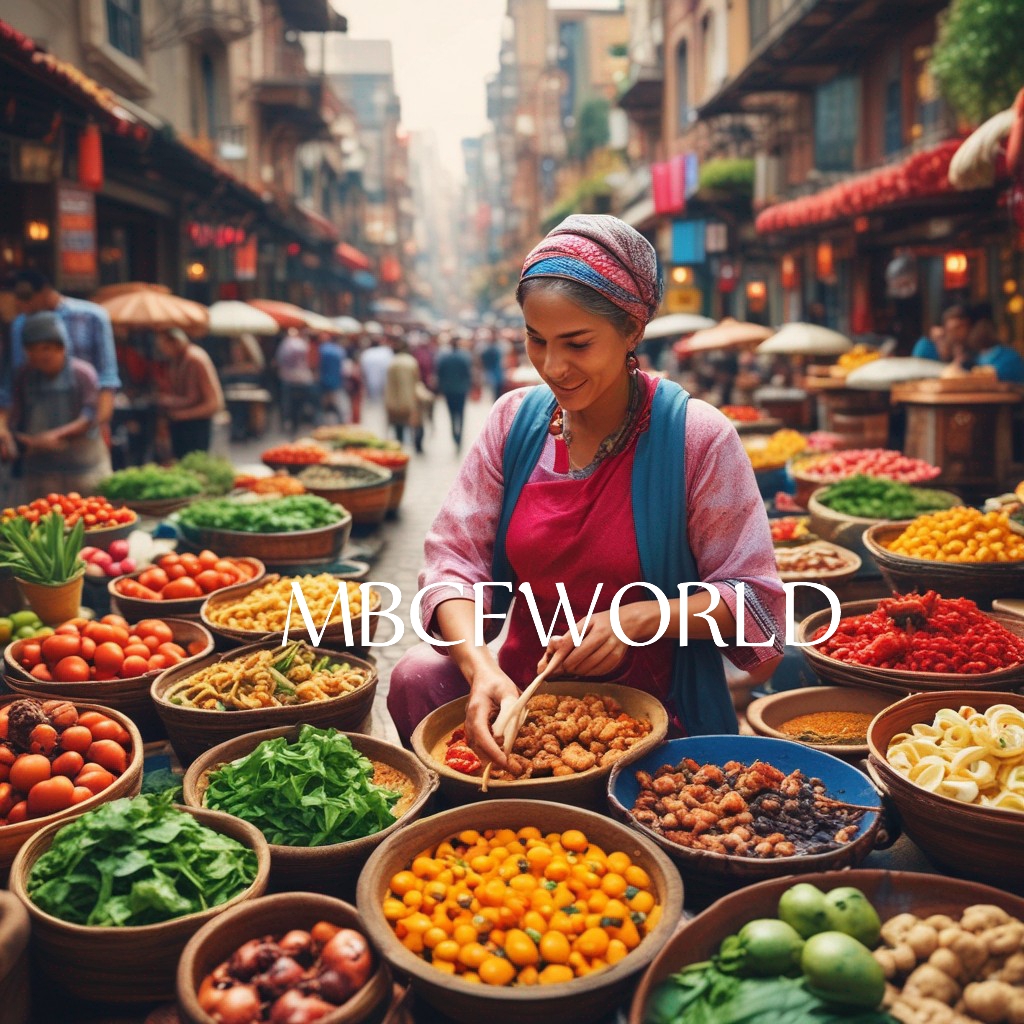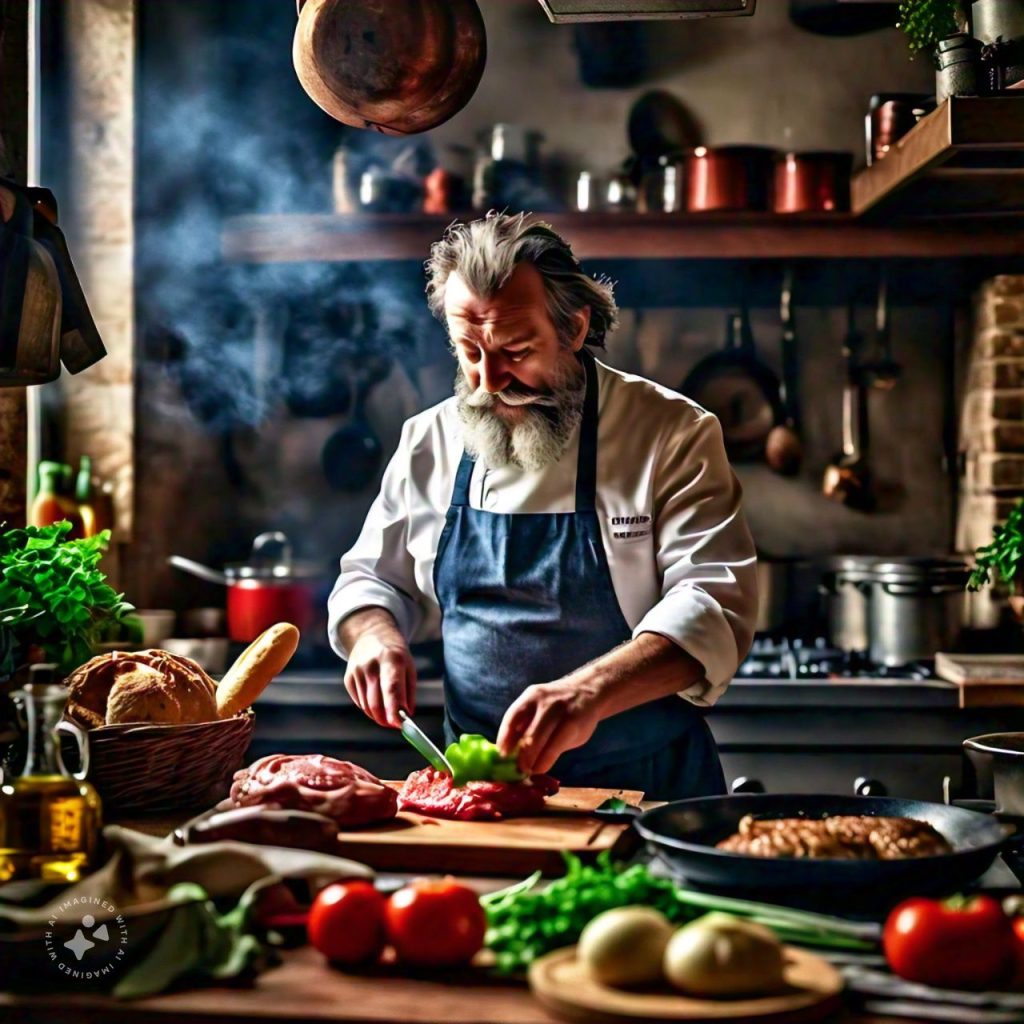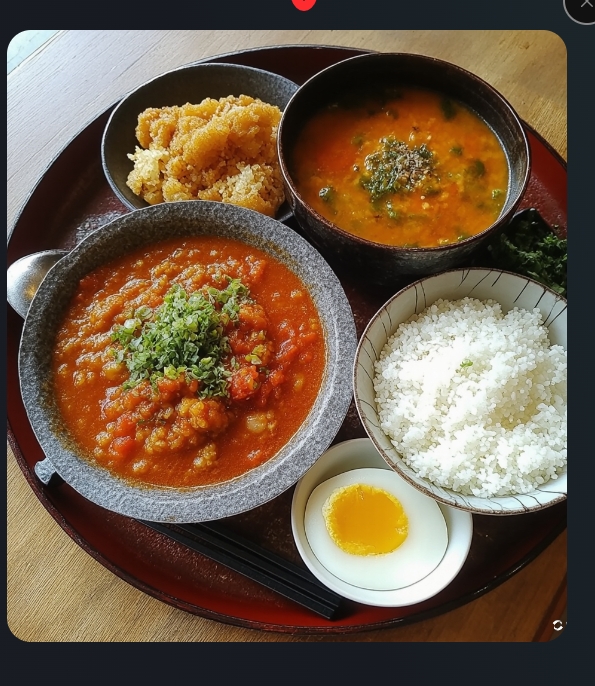

Exploring the World of Food and Recipes: A Culinary Journey
Food is not just a basic necessity; it is a form of art, a cultural expression, and a way to bring people together. In today’s diverse and interconnected world, exploring different cuisines and trying out new recipes has become a popular pastime for many. Whether you are a seasoned home cook or a beginner in the kitchen, there is always something exciting to discover in the world of food and recipes.
A Culinary Journey
1. The Joy of Cooking
Cooking is a creative and rewarding activity that allows you to experiment with flavors, textures, and techniques. Whether you enjoy whipping up quick and easy meals or tackling complex dishes, the process of cooking can be both therapeutic and fulfilling. From chopping vegetables to sautéing aromatics to simmering sauces, each step in the cooking process contributes to the final masterpiece that you plate up and enjoy.
2. Exploring Global Cuisines
One of the most exciting aspects of food culture is the diversity of cuisines found around the world. From the spicy curries of India to the hearty stews of Eastern Europe to the fresh seafood of coastal regions, each cuisine tells a story of history, geography, and tradition. Exploring global cuisines through recipes and ingredients can open up a whole new world of flavors and culinary experiences.
3. Cooking Tips and Techniques
Whether you are a novice cook or a seasoned chef, there are always new tips and techniques to learn in the kitchen. From mastering basic knife skills to understanding different cooking methods like baking, grilling, and braising, honing your culinary skills can enhance your cooking repertoire and help you create delicious dishes with confidence. Experimenting with new ingredients, trying out different flavor combinations, and seeking inspiration from cookbooks and cooking shows are great ways to expand your culinary knowledge.
4. Healthy Eating and Nutrition
In today’s health-conscious society, many people are paying more attention to what they eat and how it affects their well-being. Incorporating nutritious ingredients, fresh produce, lean proteins, and whole grains into your meals can help you maintain a balanced and healthy diet. Experimenting with plant-based recipes, exploring superfoods, and learning about portion control and mindful eating are essential components of a healthy lifestyle.
5. Seasonal Cooking and Farm-to-Table Dining
Embracing seasonal ingredients and supporting local farmers is not only eco-friendly but also a delicious way to enjoy fresh and flavorful meals. Seasonal cooking allows you to take advantage of the best produce available each season, from ripe summer tomatoes to hearty winter squashes. Visiting farmers’ markets, joining a community-supported agriculture (CSA) program, or growing your own herbs and vegetables are excellent ways to connect with the source of your food and appreciate the farm-to-table movement.
6. Family Recipes and Food Traditions
Food is often intertwined with family memories and cultural traditions. Passing down recipes from generation to generation, cooking together as a family, and sharing meals during holidays and special occasions create a sense of connection and belonging. Family recipes carry stories of love, heritage, and nostalgia, preserving a culinary legacy that transcends time and geography.
7. The Art of Baking
Baking is
Embark on a Culinary Journey: Exploring the World of Food and Flavors
Food is a universal language that transcends borders, cultures, and languages. It has the power to evoke memories, spark conversations, and create connections among people from all walks of life. A culinary journey is not just about eating; it is about experiencing the world through flavors, aromas, and textures that tell stories of tradition, history, and innovation. Join me on a virtual expedition as we delve into the rich and diverse landscape of global cuisine, uncovering the hidden gems and culinary delights that await us.
The Beginning of the Voyage
Every culinary journey begins with a single step, a moment of curiosity or inspiration that leads us to explore new tastes and ingredients. It could be a childhood memory of a comforting dish prepared by a loved one, a travel experience that introduced us to exotic flavors, or a cooking show that sparked our interest in gastronomy. Whatever the catalyst may be, the journey of discovery is an exciting and rewarding one that opens up a world of possibilities.
Navigating Global Cuisines
As we set sail on our culinary journey, we encounter a vast and diverse array of cuisines from around the world. Each culture has its own unique culinary traditions, ingredients, and cooking techniques that reflect the history, geography, and values of its people. From the fiery spices of Indian curries to the delicate flavors of Japanese sushi, from the hearty stews of Moroccan tagines to the aromatic herbs of Italian pasta dishes, the world of food is a treasure trove of flavors waiting to be explored.
Embracing Diversity in Flavors
One of the most exciting aspects of a culinary journey is the opportunity to taste and savor a wide range of flavors and textures. From sweet and savory to spicy and tangy, from crunchy and crispy to soft and velvety, each dish offers a sensory experience that delights the taste buds and awakens the palate. Experimenting with new ingredients, trying out different cooking methods, and combining contrasting flavors are ways to expand our culinary horizons and create memorable dining experiences.
Cooking as an Art Form
Cooking is not just a practical skill; it is an art form that allows us to express our creativity, passion, and personality through food. Whether we are following a traditional recipe passed down through generations or improvising with ingredients on hand, cooking is a form of self-expression that brings joy and fulfillment. The act of chopping, stirring, and tasting transforms raw ingredients into a work of art that nourishes the body and soul, creating moments of connection and celebration around the dining table.
The Importance of Food Sustainability
In our journey through the world of food, we cannot overlook the importance of food sustainability and responsible consumption. As global citizens, we have a responsibility to support local farmers, reduce food waste, and choose ingredients that are ethically sourced and environmentally friendly. By embracing sustainable practices in our cooking and eating habits, we can contribute to a healthier planet and a more equitable food system for future generations.
Culinary Traditions and Family Recipes
Food is often a bridge that connects us to our roots, our heritage, and our family history. Family recipes passed down from generation to generation carry with them stories of love, resilience, and tradition. Cooking together as a family, sharing meals during holidays and special occasions, and preserving culinary traditions help us stay connected to our cultural identity and create lasting memories that bind us together.
[8/22, 9:08 PM] PRINCESS: Embark on a Culinary Journey: Exploring the World of Food and Flavors
Food is a universal language that transcends borders, cultures, and languages. It has the power to evoke memories, spark conversations, and create connections among people from all walks of life. A culinary journey is not just about eating; it is about experiencing the world through flavors, aromas, and textures that tell stories of tradition, history, and innovation. Join me on a virtual expedition as we delve into the rich and diverse landscape of global cuisine, uncovering the hidden gems and culinary delights that await us.
The Beginning of the Voyage
Every culinary journey begins with a single step, a moment of curiosity or inspiration that leads us to explore new tastes and ingredients. It could be a childhood memory of a comforting dish prepared by a loved one, a travel experience that introduced us to exotic flavors, or a cooking show that sparked our interest in gastronomy. Whatever the catalyst may be, the journey of discovery is an exciting and rewarding one that opens up a world of possibilities.
Navigating Global Cuisines
As we set sail on our culinary journey, we encounter a vast and diverse array of cuisines from around the world. Each culture has its own unique culinary traditions, ingredients, and cooking techniques that reflect the history, geography, and values of its people. From the fiery spices of Indian curries to the delicate flavors of Japanese sushi, from the hearty stews of Moroccan tagines to the aromatic herbs of Italian pasta dishes, the world of food is a treasure trove of flavors waiting to be explored.
Embracing Diversity in Flavors
One of the most exciting aspects of a culinary journey is the opportunity to taste and savor a wide range of flavors and textures. From sweet and savory to spicy and tangy, from crunchy and crispy to soft and velvety, each dish offers a sensory experience that delights the taste buds and awakens the palate. Experimenting with new ingredients, trying out different cooking methods, and combining contrasting flavors are ways to expand our culinary horizons and create memorable dining experiences.
Cooking as an Art Form
Cooking is not just a practical skill; it is an art form that allows us to express our creativity, passion, and personality through food. Whether we are following a traditional recipe passed down through generations or improvising with ingredients on hand, cooking is a form of self-expression that brings joy and fulfillment. The act of chopping, stirring, and tasting transforms raw ingredients into a work of art that nourishes the body and soul, creating moments of connection and celebration around the dining table.
The Importance of Food Sustainability
In our journey through the world of food, we cannot overlook the importance of food sustainability and responsible consumption. As global citizens, we have a responsibility to support local farmers, reduce food waste, and choose ingredients that are ethically sourced and environmentally friendly. By embracing sustainable practices in our cooking and eating habits, we can contribute to a healthier planet and a more equitable food system for future generations.
Culinary Traditions and Family Recipes
Food is often a bridge that connects us to our roots, our heritage, and our family history. Family recipes passed down from generation to generation carry with them stories of love, resilience, and tradition. Cooking together as a family, sharing meals during holidays and special occasions, and preserving culinary traditions help us stay connected to our cultural identity and create lasting memories that bind us together.






